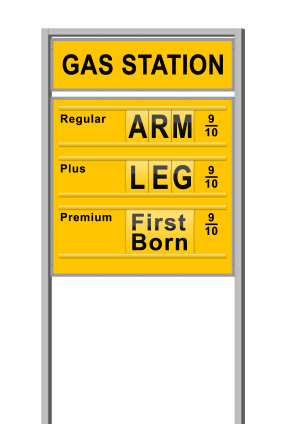The Cost of Living is Increasing – How to Protect Yourself from Inevitable Higher Costs of Living
 Q: We bought our first home a few years ago when interest rates were low. Both of us had good incomes so we spent as much as the bank would give us. Now I work part-time to minimize our daycare costs; we owe money on our line of credit for renovations, we have car loans, a student loan and credit card debt. I keep hearing that interest rates will go up and I’m worried. What can we do to protect ourselves?
Q: We bought our first home a few years ago when interest rates were low. Both of us had good incomes so we spent as much as the bank would give us. Now I work part-time to minimize our daycare costs; we owe money on our line of credit for renovations, we have car loans, a student loan and credit card debt. I keep hearing that interest rates will go up and I’m worried. What can we do to protect ourselves?
A: In the excitement of buying a first home, many people spend more time deciding on paint colours than on establishing a contingency plan for when their circumstances will change. A mortgage is a long-term commitment, and as the years go by, the chances that your circumstances will change increases with time. While low interest rates are great when first committing to a mortgage, you need to prepare yourself for the reality that interest rates will rise.
Deal with Your Line of Credit and Credit Cards
You likely still have a bit of time before your mortgage payments will actually increase, so now is a great time to stop worrying and start planning for the inevitable. Interest rate increases affect variable rate loans first. This means that your line of credit payment will go up before your mortgage payment does. If you depend on your line of credit to pay your credit cards off each month, put your credit cards away so that you don’t get yourself deeper into debt.
Balance Your Spending with Your Income
Next, outline your budget, including all of your income and your monthly and annual expenses. The long-term consequences and significant cost of spending more than you earn is not sustainable. The cost of living for most people has been slowly creeping up these past few years and that will likely continue. Relying on your credit cards to make ends meet will only cause you more stress when your mortgage payments go up as well.
Reduce Non-Essential Expenses and Look into Refinancing
Consider what’s important to you and your family and then look for ways to cut back on discretionary expenses. Once your budget is balanced and you aren’t getting deeper into debt, consider if refinancing your mortgage might be worthwhile. Committing to a five year term at a fixed, low rate would give you peace of mind and make it easier to plan ahead.
A realistic budget that lets you live within your means, manage and pay down your non-mortgage debt, may be the difference between affording your home or being forced to sell.
Related Topics:
7 Ways to Protect Yourself from Rising Interest Rates
How to Pay Off Your Debt Sooner and Save Money
12 Ways to Get Out of Debt
How to Create a Budget



0 Comments